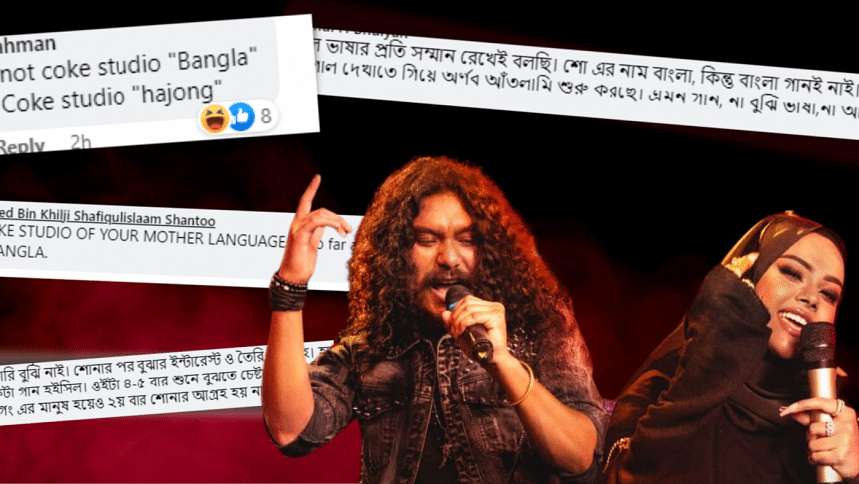No singer should ever apologise for his mother tongue

They say that life is a great leveller – and that sentiment is doubly true for the entertainment industry. Coke Studio Bangla, a cultural phenomenon fuelled by endless debates about meritocracy and even capitalism in music, started season 2 with the highly appreciated "Murir Tin", blending dialects of Chattogram, Khulna and Sylhet to make an incredible musical mishmash.
Then followed "Bonbibi", and while it was overall appreciated for its presentation, tone and an in-form Meghdol's consistent brilliance, talks of not understanding and perhaps appropriating the social and geopolitical nuances also ran amuck on social media.
By all means, the third collaboration between Animes Roy and a relatively unknown artist named Daughter of Coastal should have been unanimously the best – that was the conclusion that I came to after listening to a few of the latter's songs.
While I'm not well versed in rap, D.O.C's original music felt stellar, so it was all the more disappointing when her performance fell flat in the new Coke Studio Bangla song, "Nahubo". While the music and tune is still an enjoyably fresh original, the inspiration that the makers took from Coke Studio Pakistan's "Kana Yaari" was more than evident, right down to when the female rapper makes her 'bombastic' entrance in the song.
All the firepower that the musical team boasts is still there and they are undoubtedly at their best – Saadul and Imran's guitar riffs carry the song, Mithun Chakra's percussions are groovy as ever and while Sayonton Mangsang's composition arguably has a few consistency issues, his work on the saxophone, flute and synth are immaculate.
However, the song did not go down well with netizens on the internet, owing not only to its aforementioned visual similarity with the aforementioned "Kana Yari", featuring Kalfi Khalil and Eva B.
Unfortunately, any of the comments also went as far as to ridicule Animes himself and worse, insult his Hajong language, which in no way is acceptable.
"I know many of you are having a hard time understanding the song easily, due to linguistic reasons. For that, I am sorry. However, I can say that I did not compose this song with any negative words, which would bring shame to my Hajong community. So, I would request everyone, please don't speak ill about my mother tongue. I am not such an ill willed person," shared the singer on a social media post, which he later deleted.
Animes, a proud member of the Hajong community, claimed that he cannot remember the last time that he spoke in anything but Bangla. The sheer emotions of disappointment that emanated from the post was enough to remind us once again that while artistes are encouraged to have a 'thick skin', they too are human beings and it is not always possible to ignore the sentiments of the public.
Many countered that their problem was not with Hajong itself, as evident by the overwhelming popularity of "Nasek Nasek", but the execution of the song itself. But as I write this, I can see dozens of unsavoury comments being made about the song, on my own news feed.
There is no real way out of the conundrum but for the Coke Studio team to ignore social media for a while, and focus on their next songs awaiting release. The merit of a song will definitely be judged by the audience, no doubt, but an artist like Animes Roy should never have to apologise for his work, regardless of what people think of it. And I cannot believe I have to spell this out – no human being should ever have to apologise for his mother tongue.

 For all latest news, follow The Daily Star's Google News channel.
For all latest news, follow The Daily Star's Google News channel. 











Comments